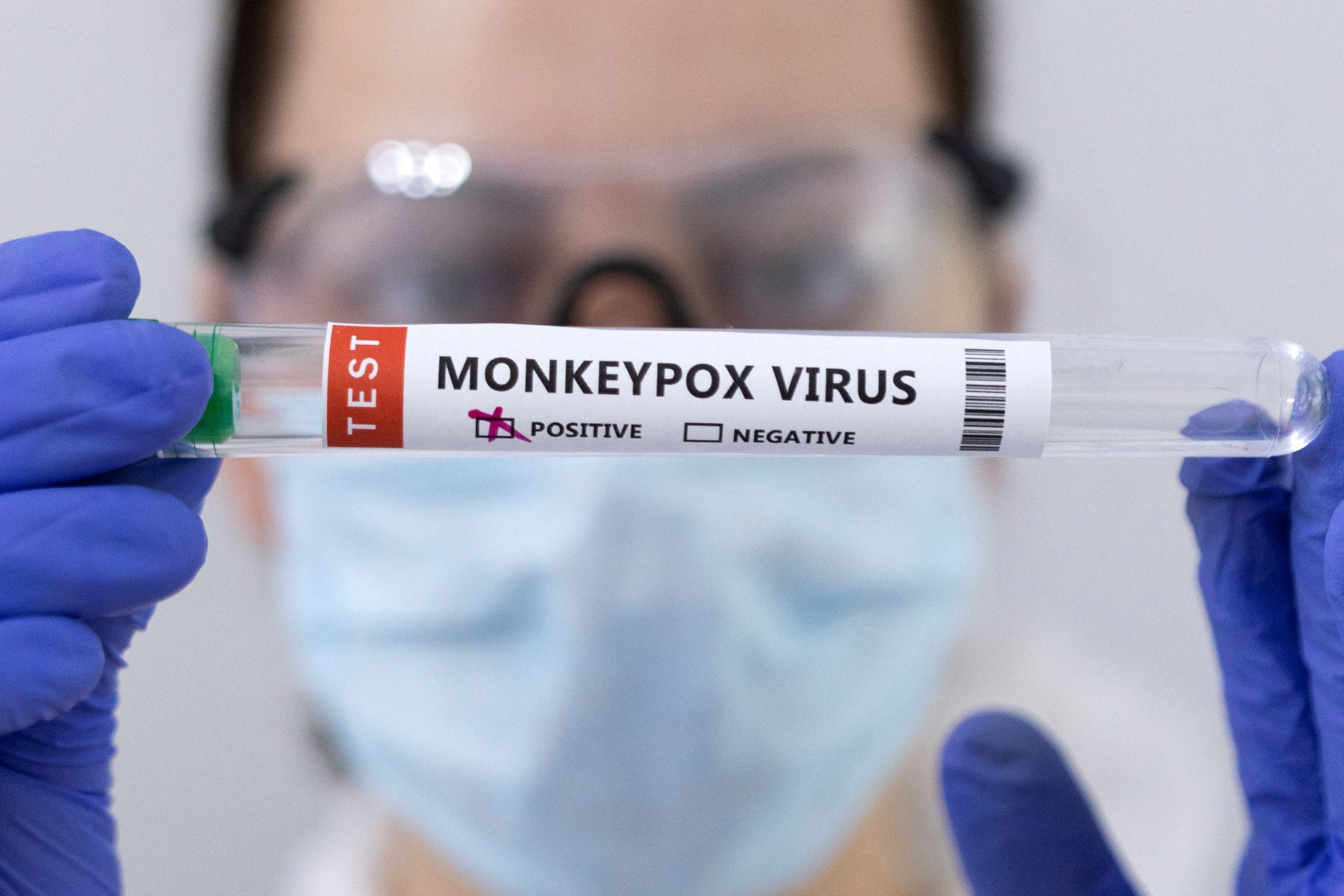Monkeypox: Scientists find potential antiviral treatment
New outbreak ‘likely a random event’ and does not pose a threat on scale of Covid, researchers say

Your support helps us to tell the story
From reproductive rights to climate change to Big Tech, The Independent is on the ground when the story is developing. Whether it's investigating the financials of Elon Musk's pro-Trump PAC or producing our latest documentary, 'The A Word', which shines a light on the American women fighting for reproductive rights, we know how important it is to parse out the facts from the messaging.
At such a critical moment in US history, we need reporters on the ground. Your donation allows us to keep sending journalists to speak to both sides of the story.
The Independent is trusted by Americans across the entire political spectrum. And unlike many other quality news outlets, we choose not to lock Americans out of our reporting and analysis with paywalls. We believe quality journalism should be available to everyone, paid for by those who can afford it.
Your support makes all the difference.Scientists have found a potential antiviral treatment for monkeypox, though they said the disease remains a far less significant risk than Covid.
New research into past outbreaks of monkeypox in the UK identified a patient who had shortened symptoms after being treated with one of two antivirals designed for smallpox.
The study published in The Lancet Infectious Diseases looked at seven patients treated for the virus between 2018 and 202.
It comes as the new monkeypox outbreak grew to 71 confirmed in Britain and 85 cases across eight countries in Europe.
Researchers said their study only covered a small sample group and said further investigations around the antiviral treatments were needed.
According to the findings, monkeypox was found within throat and blood samples of the patients. Five of the patients studied spent more than three weeks in isolation – up to 39 days – as they received prolonged positive PCR test results.
However the authors said this does not necessarily point towards airborne infection on a similar level to Covid. The tests used were PCR test which also do not detected infectivity.
“In our cases, it’s been with very close contact in households with children and parents having direct contact with each other rather than the necessary at a distance,” Dr David Porter, on of the authors of the report said.
There are currently no licensed treatements for monkeypox in humans. The only available drugs, identified in the study, were Brincidofovir and Tecovirimat, which have been approved in the USA for the treatment of smallpox in preparation for a potential bioterrorism.
Three of the patients looked at were treated with the antiviral brincidofovir, which was not found to be effective, and one patient treated with Tecovirimat for two weeks who shorter illness duration. One patient experienced a mild relapse 6 weeks after hospital discharge.
Between 2018 and 2019 four of the patients were treated for monkeypox in specialist units in England. Three of the cases were linked to west Africa and the fourth case was found in a healthcare worker who had been exposed to the virus.
Three further cases on monkeypox looked at in the study were reported in 2021 in a family travelling from Nigeria. One of these cases occurred in a child
Researchers noted the cases studied between 2018 and 2021 are not “dissimilar” to those currently being identified in terms of their spread.
The report said: “The disease course of the patients we report on were challenging and resource-intensive to manage, even in the high-income setting of the UK. Monkeypox outbreaks will continue to occur in west and central Africa, and health-care workers around the world must remain vigilant to the possibility of monkeypox in travellers presenting with fever and rash. Our observations in this small series support further research into antivirals to treat this neglected tropical disease.”
At a briefing held by the Science Media Centre on Tuesday, researchers warned against comparing the current outbreak of monkeypox to Covid.
Dr Jake Dunning, consultant in infectious dieases and high consequence infectious diseases at the Royal Free Hospital, said: “Covid as an emerging infection, is far more significant for society than the monkey pox... I think we have to be careful not to equate the two as well, so particularly in terms of transmission and pandemic risk.
“They are very different beasts in that sense. So I don’t want people thinking that just because we’ve had a Covid pandemic, every new emerging infection will also lead to a pandemic.”
Dr Hugh Adler, honorary research fellow at Liverpool School of Tropical Medicine and Specialty Trainee in Infectious Diseases said unlike Covid, monkeypox was a “DNA virus”, which do not evolve rapidly so it is unlikely the current outbreak is a “sudden shift” in the virus’s behaviour
He added: “It’s more likely either a random event and or driven somewhat by human behaviour, in particular that travel is opening more widely again. But from their preliminary genomic data, there is no signal but also on what we know is the biology of monkeypox, where we would not predict that this that it would change that fast.”

Join our commenting forum
Join thought-provoking conversations, follow other Independent readers and see their replies
Comments